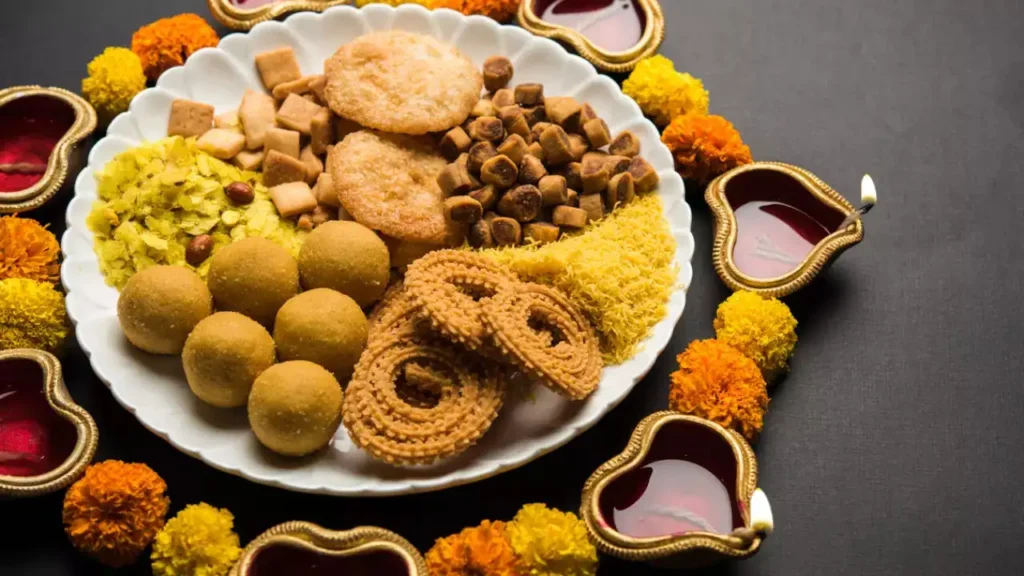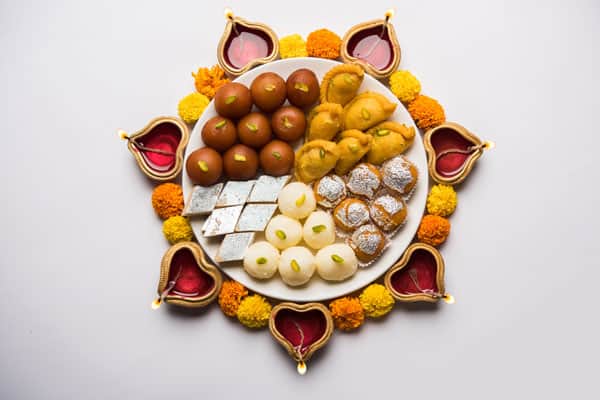How to Enjoy Festive Food Without Guilt This Diwali: Smart Ways to Celebrate with Taste and Health

How to Enjoy Festive Food Without Guilt This Diwali: Smart Ways to Celebrate with Taste and Health
Diwali is here, so eating well becomes just as important as celebrating well. With homes lit up, music in the air, and tables full of tempting treats, food is at the centre of the festivities. But while it’s a time to indulge and enjoy, it’s also easy to go overboard and feel heavy, bloated, or even guilty after meals.
Finding the right balance between celebration and self-care is key. You don’t need to avoid your favourite dishes altogether—just make more mindful choices. Let’s take a closer look at what festive foods you can enjoy freely and which ones are better consumed in moderation.
Healthy festive foods you can enjoy
Homemade traditional sweets
Sweets are the heart of Diwali, and homemade versions are not just delicious—they can also be nutritious when made with the right ingredients.
Use natural sweeteners like jaggery instead of refined sugar. Jaggery also contains iron and magnesium, making it a healthier choice.
Ghee, often misunderstood, can support digestion and hormone balance when used in moderation.
Sweets made with gram flour or whole wheat flour, along with dry fruits like almonds and raisins, offer fibre, healthy fats, and more flavour.
Take your time to enjoy these treats. Eat slowly and savour the flavours—it’s about enjoying the moment, not rushing through it.

Dry fruits, nuts, and seeds
These are compact but rich in nutrients.
Almonds, pistachios, and walnuts are full of healthy fats and fibre, helping to manage hunger and balance blood sugar.
Seeds like flax, chia, and sunflower are full of vitamins and minerals.
Avoid sugar-coated or fried nuts. Choose roasted or soaked varieties to keep things both tasty and healthy.
Non-sugary festive drinks
Not every festive drink needs to be sugary or fizzy. Healthier and more refreshing options are available.
Spiced buttermilk is light, tasty, and supports digestion.
Coconut water helps keep you hydrated and contains essential electrolytes.
Warm almond milk with saffron can satisfy sweet cravings without refined sugar.
These drinks are not just better for your body—they also offer traditional flavours with a modern, mindful twist.
Spices with benefits
Traditional Indian spices are not only flavourful but also healing.
Turmeric, cumin, cinnamon, fennel, and cardamom can support digestion, help regulate blood sugar, and boost metabolism.
Adding these to your festive cooking enhances taste and provides added health benefits.
Harmful festive foods to be careful with
High sugar and refined carbohydrate foods
Many store-bought sweets and bakery items contain refined flour and sugar, which spike blood sugar and lead to weight gain.
These often include hydrogenated fats, which can be harmful to heart health.
Choose sweets made with jaggery, dates, or whole grain flour when possible. Homemade options are almost always a better bet.
Deep-fried snacks
From puris to pakoras, fried snacks are a festival staple—but they can be harmful if eaten in excess.
Oil that’s reused for frying contains high levels of trans fats, which increase oxidative stress in the body.
Try baking or air-frying as alternatives. If you do choose fried foods, keep your portion small.
Alcohol and dehydration
Drinks flow easily during Diwali parties, but alcohol is high in empty calories and causes dehydration.
It can leave you feeling sluggish, lower your energy levels, and increase your cravings for salty and sugary foods.
Drink water or sparkling water between drinks to stay hydrated and avoid going overboard.
Mindless snacking
Festive gatherings often involve hours of nibbling without noticing how much you’re eating.
Eating while standing, chatting, or watching TV can lead to overeating.
Instead, sit down, serve yourself on a plate, and eat slowly. Being present with your food helps you enjoy it more and feel full with less.
Disclaimer
This article is meant for general awareness and does not replace professional medical advice. If you have specific dietary needs or health conditions, please consult a healthcare professional before making changes to your eating habits.












